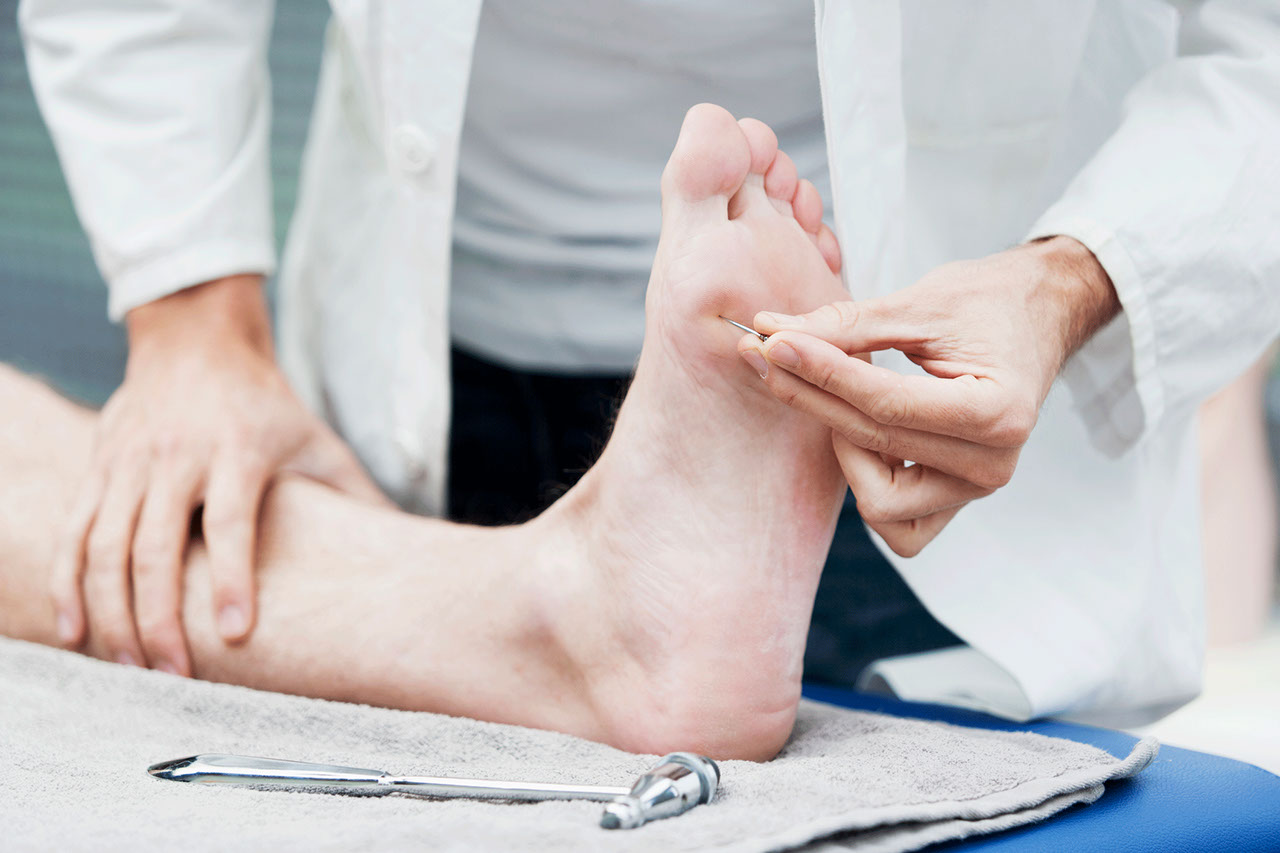What Is Diabetic Neuropathy?

More than half of all diabetes patients may develop injured nerves, especially in their legs and feet. You should be screened for diabetic neuropathy every year if you have either type 1 or type 2 diabetes.
If you have diabetes, either type 1 or type 2, you need to be careful to watch out for key symptoms of damaged nerves. Once you’ve been diagnosed with type 2 diabetes, you should be screened by a doctor every year. If you have type 1 diabetes, yearly screenings might begin five years after diagnosis.
What is diabetic neuropathy?
If the level of your blood sugar, technically called glucose, goes too high, it can injure nerves throughout your body. Scientists don’t know exactly why this happens, but it seems to have something to do with the interplay between nerves and blood vessels.
To protect yourself, or slow down the progress of the damage, you will need to maintain consistent blood sugar levels and manage high blood pressure or cholesterol.
Although diabetic neuropathy most often affects your legs or feet, it can interfere with your digestion, urinary tract, and even your heart function.
YOU MIGHT ALSO LIKE: What Is Diabetic Retinopathy?
From 60 to 70 percent of all diabetes patients develop one or more of the four main kinds of diabetic neuropathy.
Often you may not notice a problem before your nerves have been damaged. The symptoms can creep up on you. So, it is important to know what they are and watch for them.
See a doctor quickly if you have a cut or sore on your foot that is infected or won't heal, sensations in your hands or feet that interfere with your sleep or daily activities, lasting changes in digestion or urination, or dizzy or fainting spells.
What is peripheral neuropathy?
Peripheral neuropathy is the most common kind of diabetic neuropathy. Sometimes called distal symmetric peripheral neuropathy, the problem will begin in your feet and legs and may progress to your hands and arms. Symptoms tend to be worse at night. You may notice numbness or lack of awareness of changes in temperature. You may feel tingling, or a burning sensation, sharp pains, cramps, and sensitivity to any pressure or touch. Over time, you may develop serious problems in your feet, including ulcers, infections, and bone and joint pain.
One common sign is an odd walk or poor balance. Your feet might begin to look strange. If one of your three middle toes develops misshapen joints you have hammer toe.
What is autonomic neuropathy?
The autonomic nervous system controls many parts of your body, including your heart, bladder, stomach, intestines, sex organs, and eyes. Damage to the nerves in this system can cause bowel or bladder problems. If your stomach begins emptying slowly, you might have nausea, lose your appetite, or vomit. Sometimes your eyes cannot adjust as easily when the light changes. You may lose some of your usual sexual responsiveness.
What is proximal neuropathy?
This condition, also called diabetic polyradiculopathy or diabetic amyotrophy, affects the nerves in your abdomen, chest, thighs, hips, buttocks, or legs. It might make it difficult to sit up or cause severe pain in the stomach or elsewhere.
What is mononeuropathy?
This is the name for diabetic damage that affects only one nerve. It is also called focal neuropathy. Some of the symptoms include weakness in your hand that may lead you to drop things, paralysis in one side of your face, tingling in your fingers, or double vision.
How is diabetic neuropathy treated?
You can’t reverse nerve damage. So, treatment focuses on managing pain and helping you prevent further damage. According to the American Academy of Neurology, your options among medications include pregabalin (Lyrica), gabapentin (Neurontin), duloxetine (Cymbalta), venlafaxine (Effexor), and amitriptyline. You could try a topical ointment like capsaicin (Qutenza).
You’ll help avoid further damage if you take especially good care of your overall health, including managing your blood pressure and cholesterol as well as blood sugar. Limit alcohol and quit smoking. Vitamin deficiencies can make things worse, so eat a balanced diet and speak to your doctor about any supplements you might need.
Take care of any sores on your feet immediately. Infections can spread to your bones, and you might then need to have a foot or toes amputated.
Updated:
June 09, 2022
Reviewed By:
Janet O’Dell, RN